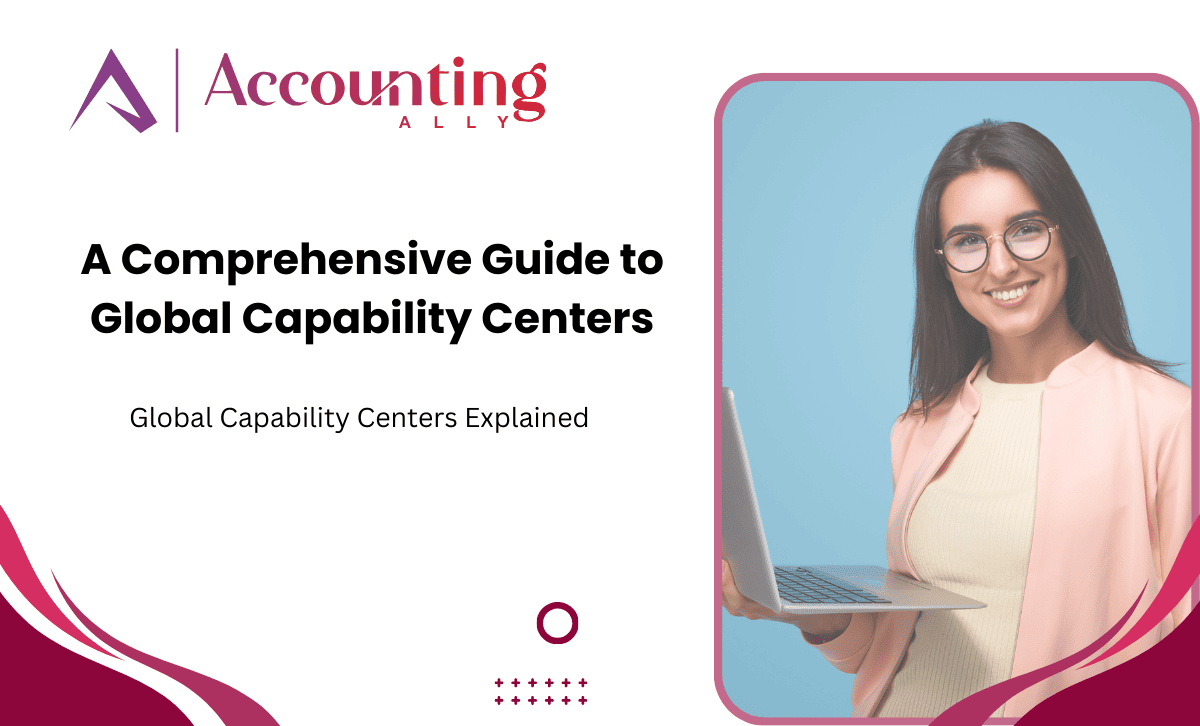A Comprehensive Guide to Global Capability Centers
Global Capability Centers (GCCs), also known as captive centers, shared service centers, or global in-house centers, are fully integrated, strategically located facilities designed to drive innovation, reduce operational costs, and tap into global talent pools. These centers have become pivotal for local CPA firms and businesses worldwide in terms of ensuring competitive advantage, business continuity, and digital transformation.
In today’s rapidly evolving business environment, GCCs play an essential role in enabling organizations to streamline operations, enhance product development, and deliver superior customer experiences. This blog explores the significance, models, and best practices involved in setting up and optimizing Global Capability Centers (GCCs).
Key Roles of Global Capability Centers (GCCs)
Global Capability Centers deliver substantial value by supporting organizations across multiple functions and driving growth. Some key roles of GCCs include:
- Driving Digital Transformation: By enabling faster and more efficient adoption of technology and digital solutions, GCCs accelerate an organization’s transformation agenda.
- Enhancing Product Innovation: GCCs are integral to developing advanced features and innovative products that cater to both local and global markets.
- Optimizing Operational Efficiency: By centralizing key business functions such as accounting and auditing, GCCs help businesses improve cost efficiency and streamline operations.
- Supporting Customer Experience: GCCs enable organizations to provide data-driven customer insights that improve service delivery across multiple channels.
- Expanding Global Reach: Through access to diverse skill sets, GCCs help businesses expand operations across regions, boosting international impact and collaboration.
These capabilities make GCCs a core component of organizational strategy, innovation, and scalability, ensuring businesses—especially local CPA firms and CPA advisory services—remain competitive on a global scale.
Types of GCC Models
When setting up a Global Capability Center, companies typically choose between two strategic models:
1. DIY (Do-It-Yourself) Model
In this model, the company establishes a fully-owned GCC, retaining complete control over operations and governance. This approach is suitable for organizations seeking long-term autonomy and control.
2. BOT (Build-Operate-Transfer) Model
In the BOT model, a third-party service provider helps build, operate, and eventually transfer ownership of the GCC. This model allows organizations to leverage external expertise during the initial stages before fully assuming control.
Each model offers distinct advantages depending on the organization’s goals, risk tolerance, and required level of expertise.
Steps to Setting Up a Global Capability Center (GCC)
Establishing a GCC involves meticulous planning and execution. Below are the key steps to ensure a successful setup:
- Define Strategic Objectives
Outline the objectives of the GCC—whether it’s reducing costs, improving CPA advisory services, or driving innovation. A clear vision will guide the entire process. - Conduct a Feasibility Study
Assess the financial and operational viability of setting up a GCC through market research, cost-benefit analysis, and risk assessments, including due diligence. - Choose the Right Offshoring Model
Select an offshoring model (DIY or BOT) that aligns with your strategic objectives. - Define Organizational Framework
Clarify reporting relationships, roles, and responsibilities to ensure alignment between the GCC and the parent company. - Focus on Talent Development
Invest in talent acquisition, retention, and development. The success of a GCC heavily depends on the skills and capabilities of its team. - Establish Governance and Communication
Effective governance and communication ensure alignment between the GCC and the parent company. - Continuous Optimization
Regularly evaluate and optimize GCC operations for improved efficiency and outcomes.
The Benefits of Global Capability Centers (GCCs)
GCCs offer numerous benefits, not only in terms of cost savings but also in operational excellence, quality, and innovation:
- Access to a Global Talent Pool: Tap into a vast pool of skilled professionals across multiple regions.
- Enhanced Quality and Productivity: Standardize processes and leverage best practices to boost productivity.
- Fostering Innovation: GCCs serve as innovation hubs for developing scalable solutions and new products, while enhancing business accounting processes.
Key Advantages of Establishing a GCC in India
India has become a prime destination for GCCs, especially for local CPA firms and CPA advisory services, due to several strategic advantages:
- Access to a Skilled Workforce
- A vast talent pool with expertise in accounting, finance, IT, and digital transformation.
- Competitive labor costs compared to Western markets.
- Cost Efficiency
- Lower operational and labor costs ensure higher ROI while maintaining quality standards.
- Robust Technology & Infrastructure
- World-class IT parks, innovation hubs, and digital infrastructure support seamless operations.
- Favorable Government Policies
- 100% FDI, tax incentives, and relaxed regulatory frameworks encourage foreign investments.
- Thriving Innovation Ecosystem
- Collaboration opportunities with startups, universities, and research institutes enhance R&D efforts.
- Time-Zone Advantage for Global Operations
- India’s strategic time zone enables 24/7 operations and seamless collaboration with teams in the US, Europe, and APAC regions.
Conclusion: Why GCCs Are Crucial for Business Growth
Global Capability Centers (GCCs) have evolved beyond being cost-saving centers to become hubs of innovation, strategic development, and business transformation. Whether your goal is to improve due diligence, enhance product development, or access global talent, GCCs offer an unparalleled solution for driving sustainable growth and business continuity.
Frequently Asked Questions(FAQs)
1. What is a Global Capability Center (GCC)?
A Global Capability Center (GCC) is a strategically located in-house facility that supports business operations by providing services such as accounting and auditing, IT support, customer experience management, and innovation. Also known as captive centers or shared service centers, GCCs help organizations drive efficiency, reduce costs, and access global talent to achieve a competitive advantage.
2. How can Global Capability Centers benefit local CPA firms?
GCCs help local CPA firms optimize key business functions like accounting, auditing, and due diligence. By centralizing these processes, firms can reduce operational costs, access a broader talent pool, and focus on high-value CPA advisory services while improving service delivery and scalability.
3. What are the key models for setting up a GCC?
There are two primary models for establishing a GCC:
- DIY (Do-It-Yourself) Model: The company builds and operates its GCC independently, maintaining full control and governance.
- BOT (Build-Operate-Transfer) Model: A third-party service provider helps build and operate the GCC before transferring ownership to the company. This approach allows for external expertise during the initial stages.
4. Why is India a preferred destination for GCCs?
India offers several strategic advantages for setting up GCCs, including access to a vast pool of skilled professionals in fields like accounting, finance, and IT. The country also has cost-efficient labor, world-class digital infrastructure, favorable government policies, and a thriving innovation ecosystem that supports business scalability and continuity.
5. What are the essential steps to set up a successful GCC?
Setting up a successful GCC involves several key steps:
- Define Strategic Objectives – Clarify the goals for cost reduction, innovation, or improved CPA advisory services.
- Conduct a Feasibility Study – Assess market conditions and perform due diligence.
- Select an Offshoring Model – Choose between the DIY or BOT model.
- Focus on Talent Development – Invest in hiring and retaining skilled professionals.
- Establish Governance – Ensure clear communication and alignment between the GCC and parent company.



